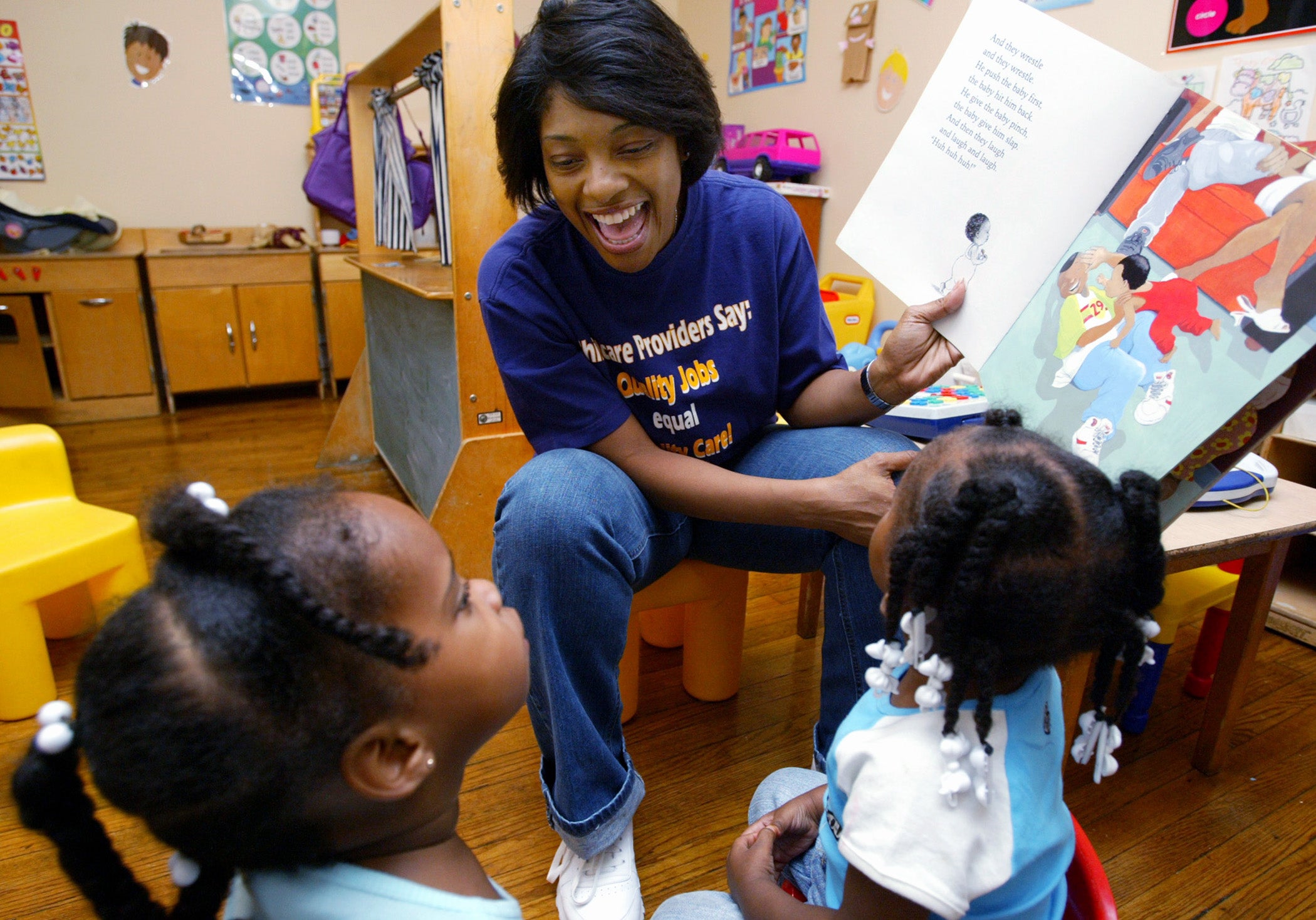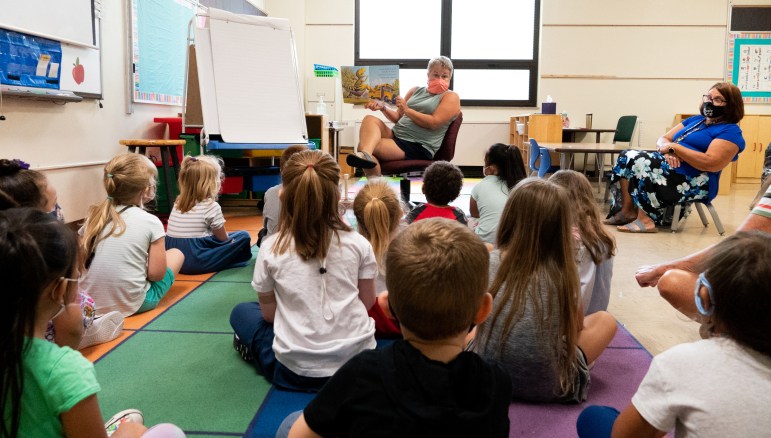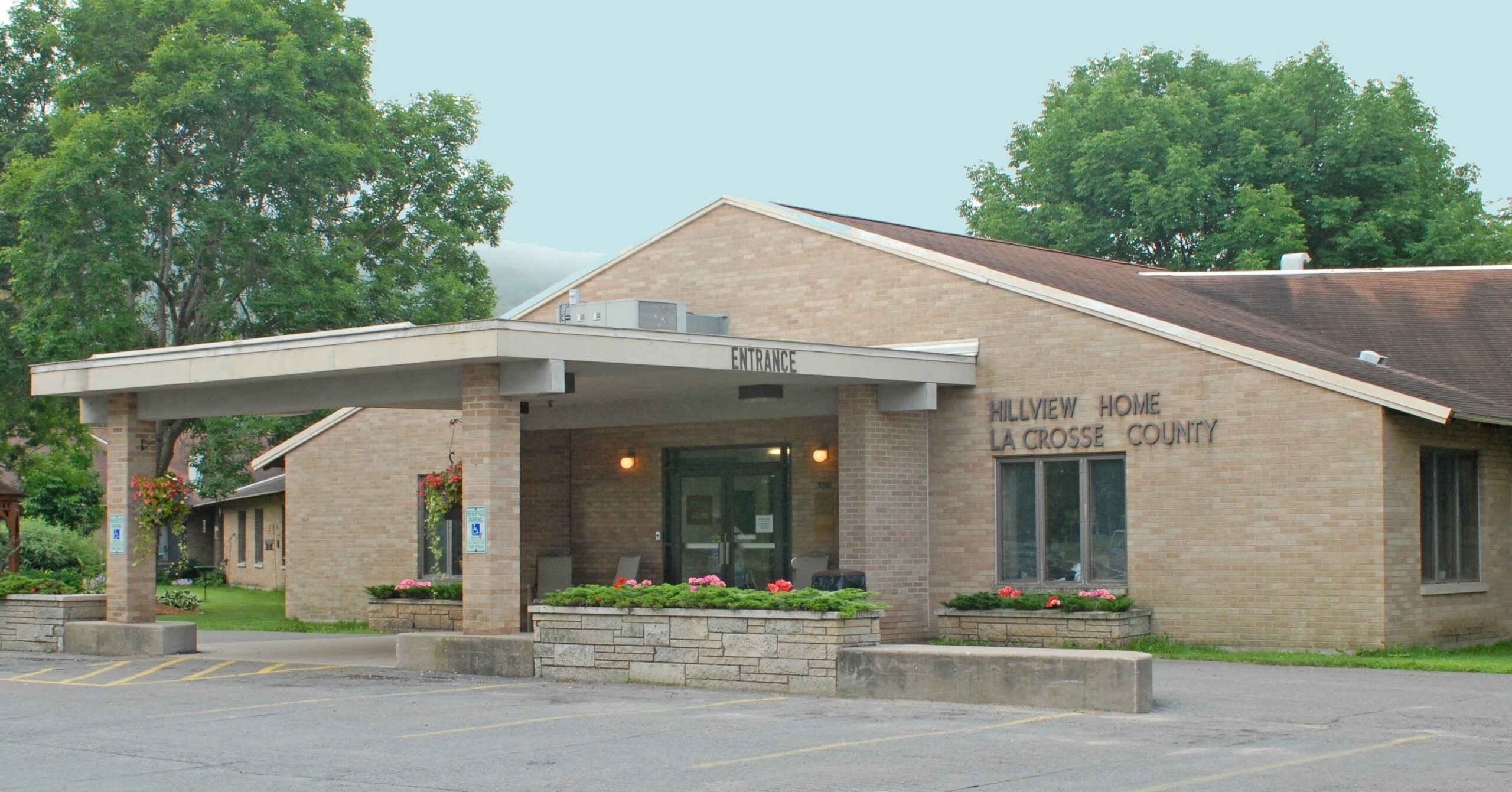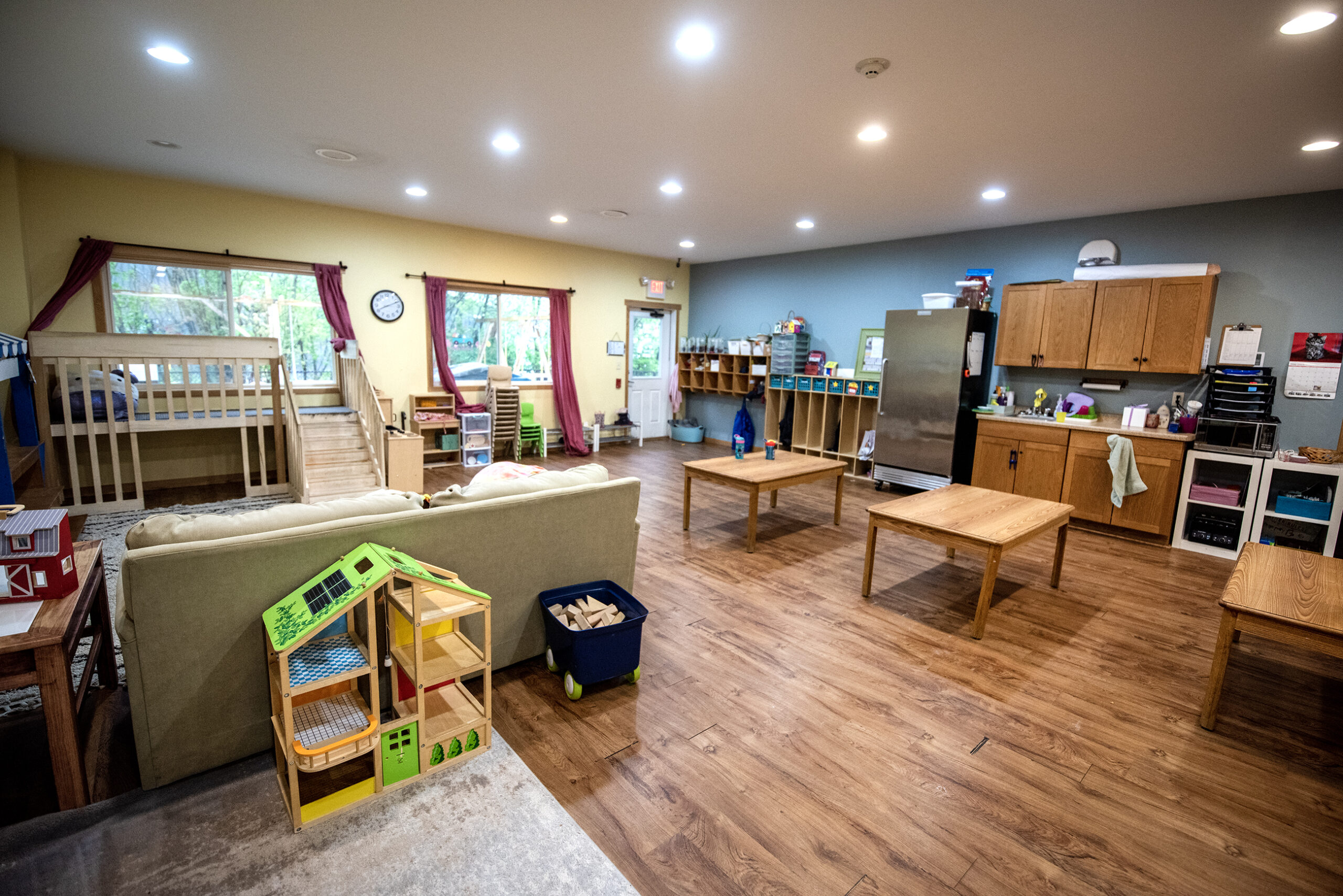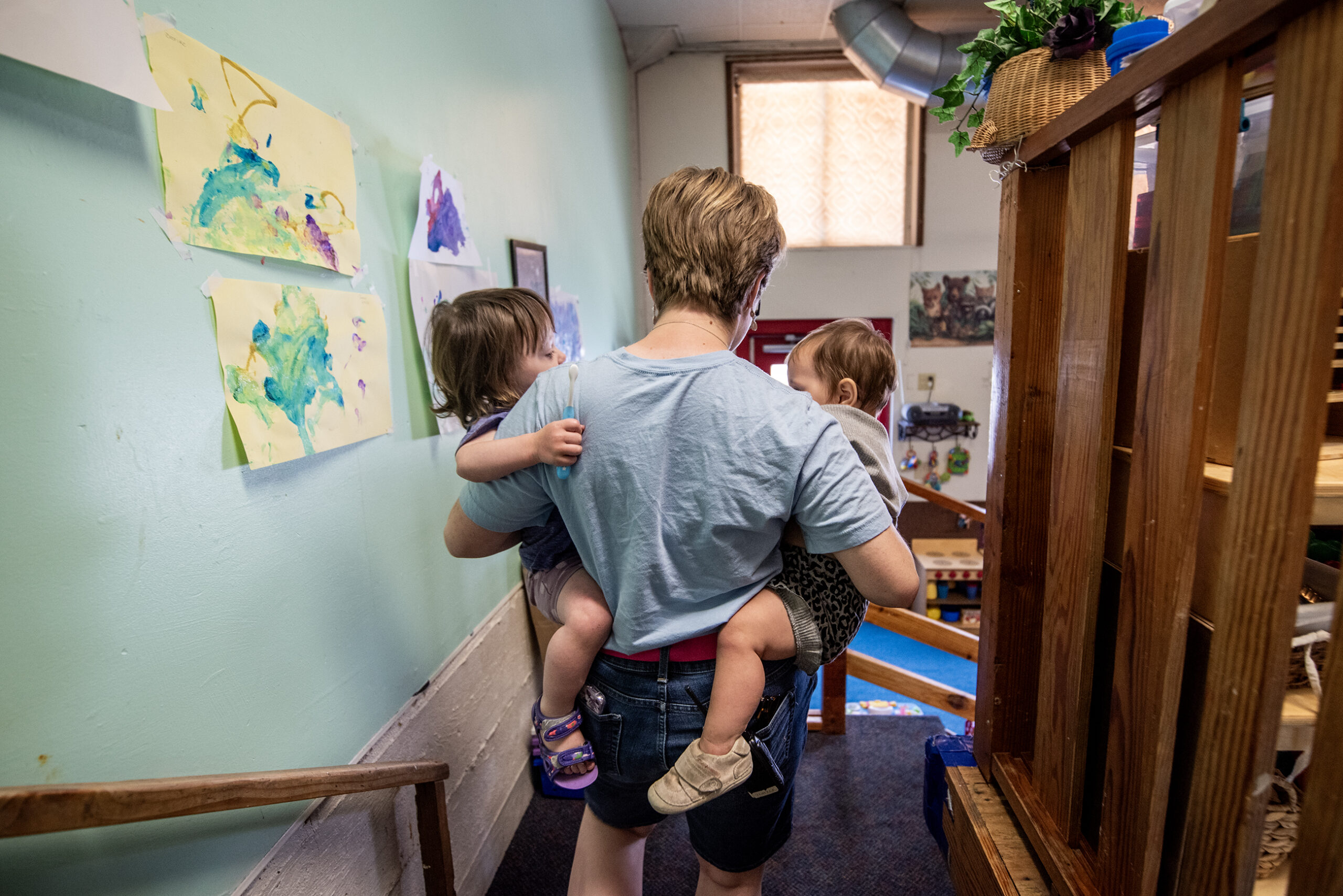Audra Wieser is the director of early child care and education at The Parenting Place, an organization in La Crosse that supports child care providers.
She said the number of regulated child care providers in La Crosse County has fallen by 75 percent over the last 15 years.
“We were up over 400 providers in La Crosse County years ago and we’re down to about 100 right now,” Wieser said. “So you can imagine the impact that this is having on the workforce and the employers.”
Stay informed on the latest news
Sign up for WPR’s email newsletter.
As more Wisconsin communities struggle with a lack of child care options, child care agencies like The Parenting Place are looking for ways to make it easier for people to become certified providers.
Through a $4,000 grant from the nonprofit Supporting Families Together Association, Wieser said The Parenting Place is offering to cover the startup costs for people looking to become a certified provider.
Providers in La Crosse, Monroe, Juneau and Crawford counties can receive up to $500 to cover application fees, background checks and required training.
Jan Burns-Fuchs is a child care certifier for The Parenting Place. She said the cost of certification is often a barrier for people to become a child care provider.
“They don’t have the income coming in yet to pay for some of those requirements,” Burns-Fuchs said. “So often times, they end up finding employment elsewhere or just staying home and maybe doing unregulated care, which then they don’t receive all the supports that we’re able to offer them.”
Unlike state licensing for larger child care businesses, Burns-Fuchs said certification takes place at the county or tribal level and allows for an individual to care for up to six children under the age of 7.
“Most of the time, it’s their own home. And oftentimes they have their own children that they’re caring for and then they bring other children into the home,” Burns-Fuchs said.
Jill Hoiting is co-director of programs and external relations at Supporting Families Together Association. She said the grant funding comes from training and technical assistance dollars the association receives annually from the state.
“With the funding that we receive from the (state) Department of Children and Families, we’re able to allocate money out to the child care resource center and referral agencies so that they can create plans that really address the most pressing needs for their communities,” Hoiting said.
She said the number of child care programs in the state has been declining for years, so the association wanted to focus on ways to help recruit and retain providers by addressing startup costs.
“We want to make sure that the care that’s available to families is of high quality and meeting health and safety standards,” Hoiting said. “When a business, particularly a very small business, is getting up and running, taking away those barriers can make them more successful.”
Hoiting said Childcaring in central Wisconsin has also been helping new or expanding providers through the initiative. She said that program includes information sessions for providers, as well as help applying for grant funding.
Wisconsin Public Radio, © Copyright 2024, Board of Regents of the University of Wisconsin System and Wisconsin Educational Communications Board.

